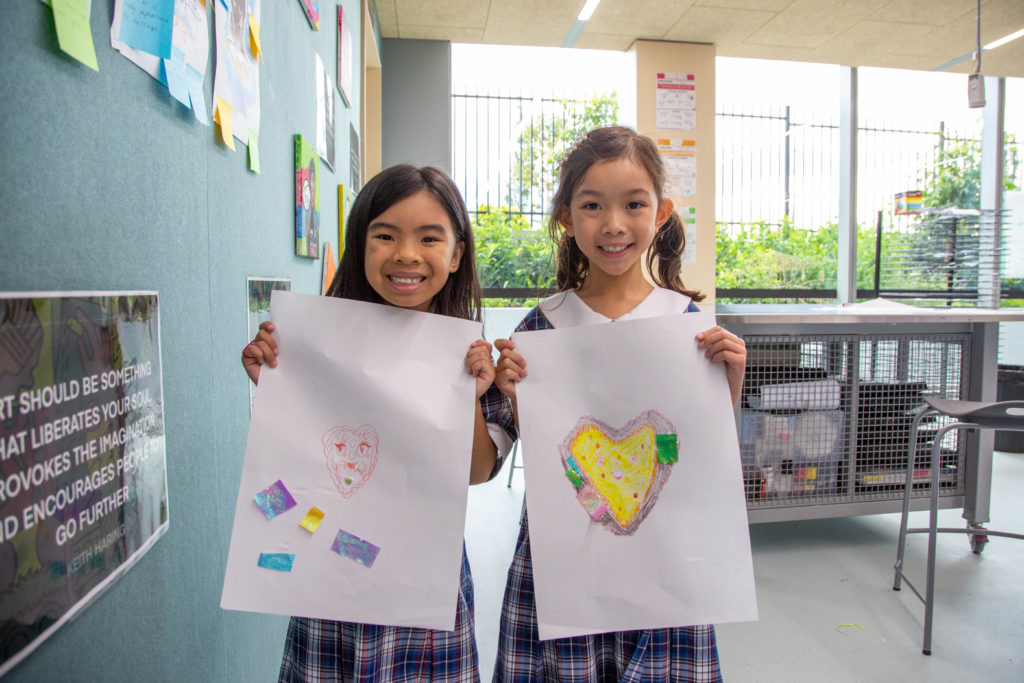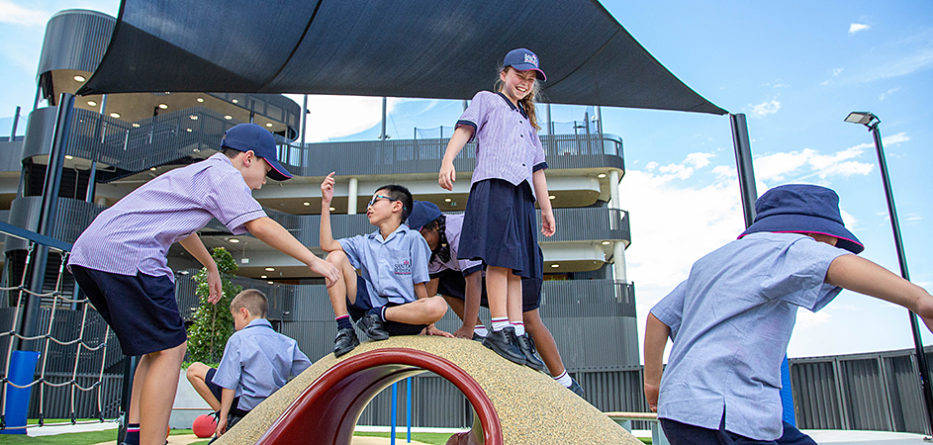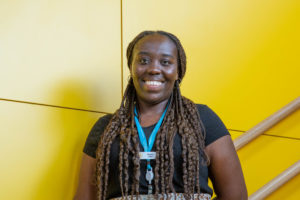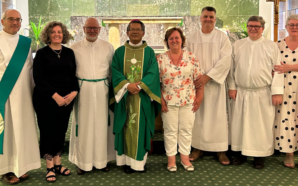Ever wondered about the real value of your children’s after-school activities? The new team behind Ambrose Activities explains what they add to a child’s development.
Raine is in Year One at the recently-opened Santa Sophia Catholic College, Box Hill. She is putting the finishing touches to the picture she has just drawn in her first art class at Ambrose Activities. She tells me that before the classes, she didn’t know she was good at art. Her class is held in the school’s spacious art rooms and the art of the senior students is hung on the walls. She looks at their paintings and asks, “Who did that?” When I tell her it was done by the older students at her school she declares: “I want to paint like that too.”

Santa Sophia Catholic College students Raine (right) and Penelope show their artwork. Image: Diocese of Parramatta.
Being inspired by others is only one of the benefits that the team behind Ambrose Activities points to when discussing the value of extra-curricular activities for children’s development. Currently, three Ambrose Activities centres operate ‘masterclasses’ like basketball, art and cooking classes as part of their after-school care programs at schools in the Diocese of Parramatta. Masterclasses are schoolteacher-led activities extending the traditional after-school care program in Ambrose services.
Mabel Osei is the Senior Manager of school-age care at Ambrose. “Extra-curricular activities encourage children to develop passion and interests for things they wouldn’t normally do,” she says. She finds children are often in tune with what they are good at, sometimes more than parents may realise. Being able to do something they want to do and enjoy can build a child’s self-esteem, says Mabel.
At Ambrose Activities, the ideas for the programs comes from the children themselves.
“Giving children a voice in what they want to learn builds their confidence. It’s something they can take with them to high school and university,” Mabel says.
She has seen very quiet children start to talk more, once they realise their opinions are heard and valued.
Children develop other social skills from masterclass activities as well. “There are a lot of studies that show children who engage in after-school activities have higher levels of social skills,” explains Mabel. She gives the example of sport. Not only does it teach hand-eye coordination, but also provides the setting to learn about winning and losing. Mabel has found some children really struggle with this important concept at first, but over time learn to cope with their feelings.
Being in a group of mixed ages, which is common in extra-curricular activities, also develops a child’s social skills and, like Raine and her artistic ambitions, can give them a goal to aim for. “Older children can take on a mentoring role with younger children too,” says Mabel.
“Older children can take on a mentoring role with younger children too.”
Ambrose is a social enterprise of the Diocese, and operates six early learning and 41 out-of-hours primary school centres as part of Catholic Diocese of Parramatta Services Limited. Ambrose Activities currently operates at St Luke’s Catholic College, Marsden Park, Santa Sophia Catholic College, Box Hill and St Madeleine’s Primary School, Kenthurst. For more information about Ambrose, go to ambrose.org.au.
Choosing extra-curricular activities
- Listen to what your child says they would like to do. This is their chance to be heard and make choices.
- If your child seems to enjoy or be skilled in a particular area, consider what activities they might enjoy and may help grow their confidence and self-esteem
- Think about the social skills your child may need to develop. Perhaps they might need to make new friends outside of school, or get more practice in winning and losing.
- Ensure it’s fun!
This article was originally published in the 2022 Lent and Easter/Autumn 2022 edition of the Catholic Outlook Magazine. You can read the magazine here.









